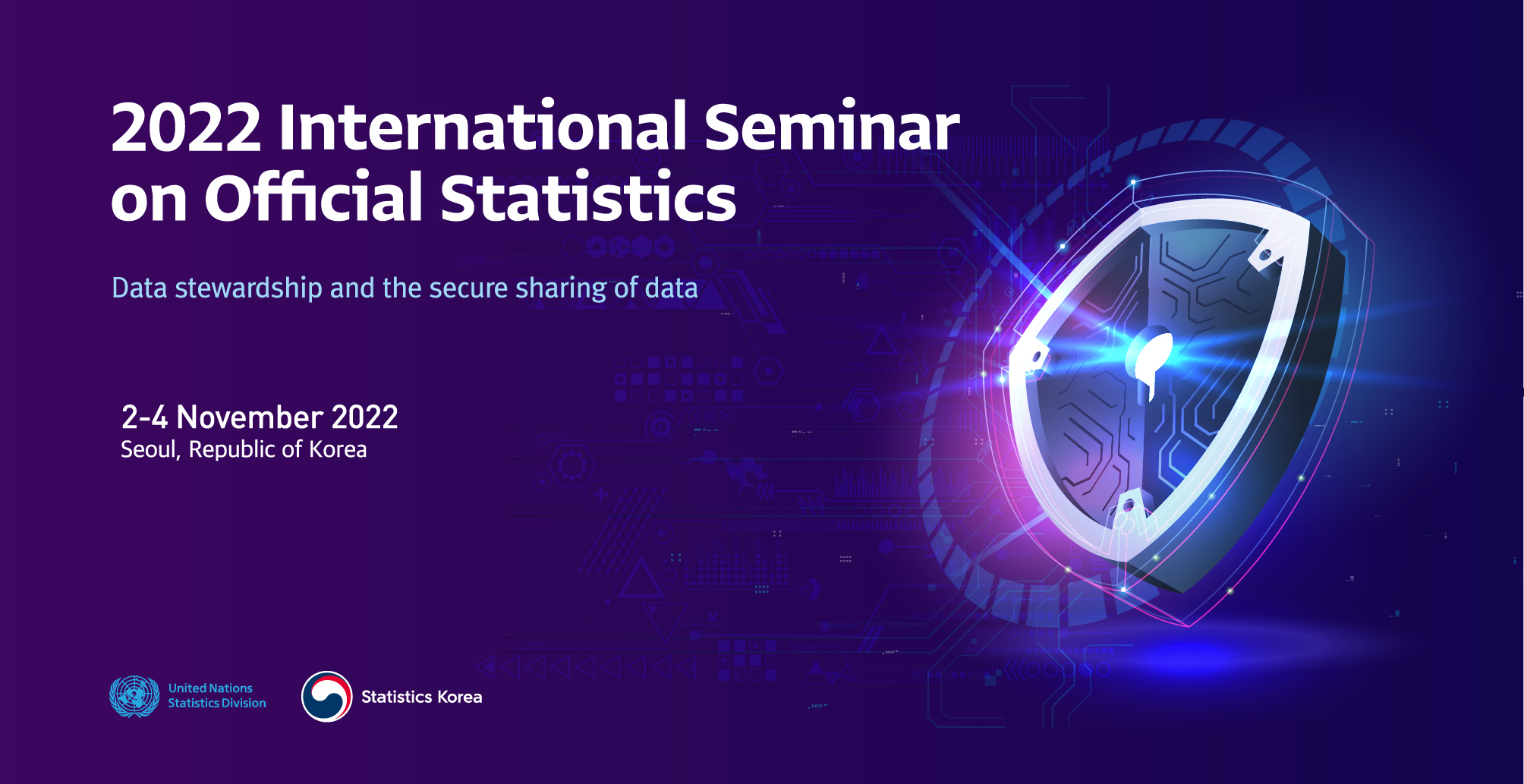
About
The UN Statistics Division and Statistics Korea (National Statistical Office of the Republic of Korea) have co-organized every year an international seminar regarding important issues on the global statistical agenda since 2010. The seminar has covered a variety of social and economic issues from the perspective of statistics. For example, we have discussed the role of data and statistics in understanding open data and data disaggregation for reaching Sustainable Development Goals; and using big data for official statistics. As we recover from the COVID-19 pandemic, the significance of timely data using new data sources and data linkage has increased and it has provided us with new opportunities to the international statistical community for discussing the data stewardship and the data security issues.
Downloads
Data Stewardship
In 2021, the UN Statistical Commission created a UN working group on data stewardship to promote sharing of data, whether public-public or public-private, allowing the regular use of relevant data for the generation of official statistics, while preserving privacy and confidentiality; and to improve the national data ecosystems through better methods and access inspired by a data stewardship approach. The program of work of this group covers - among others - data governance, equity and inclusion; the development of a conceptual framework for data stewardship; and increased attention to issues related to protection of privacy of data while ensuring its full utilization.
Secure sharing of data
Official statistics are a trusted source of information for governments around the world to make informed and data-driven decisions. As such, data are collected from a range of sources, such as household and business surveys, population, economic or agricultural censuses, a variety of administrative records or even private sector data. Those data sources are the inputs for the compilation of statistics and indicators on the economy, the environment and the society. In many ways, official statistics offer a snapshot of a country's development and rate of progress. However, the collection, processing, and dissemination of often sensitive data should only be done, if the privacy of persons and businesses is protected. So, how can we use technology to mitigate privacy risks and give provable privacy guarantees throughout the collection, processing, analysis and distribution lifecycle of potentially sensitive information?
